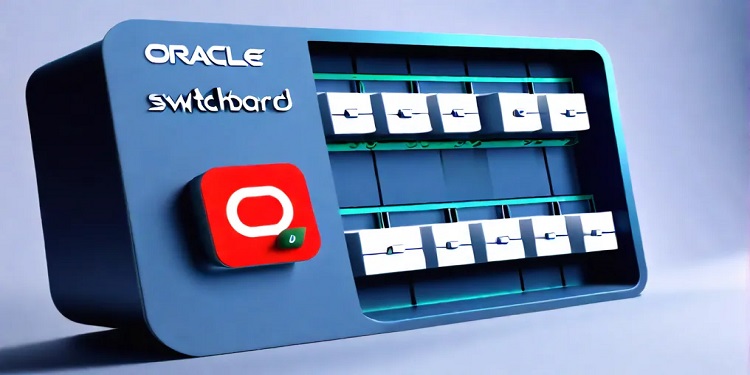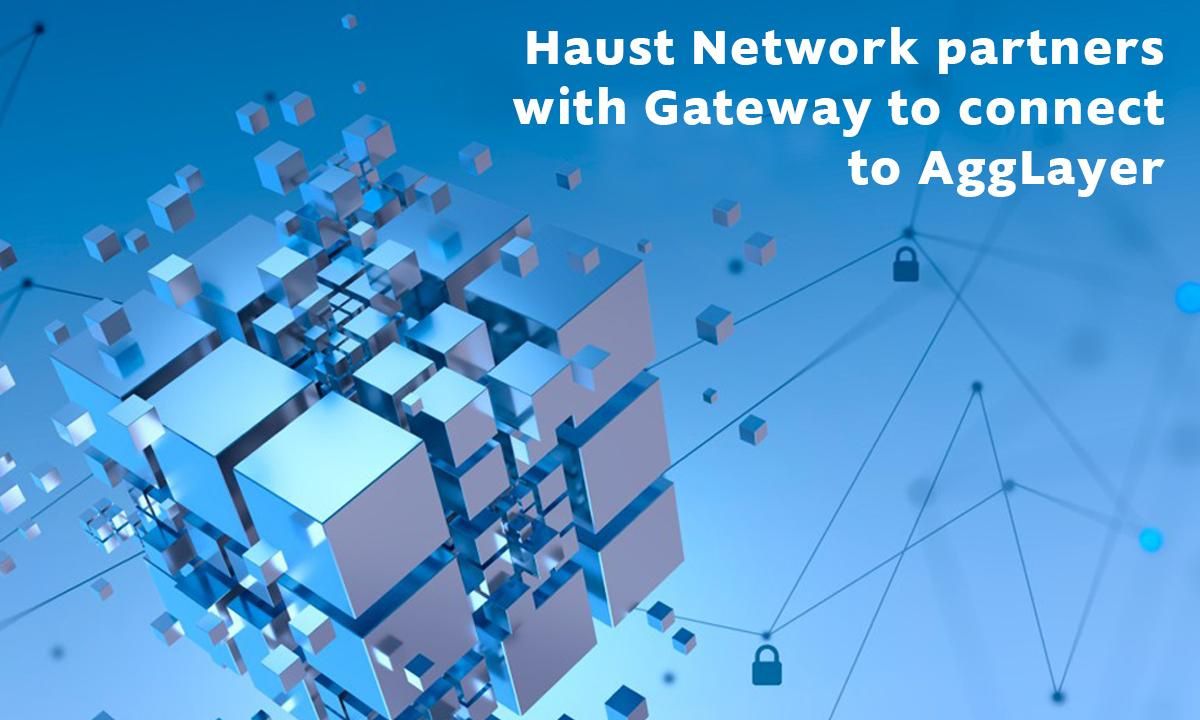DeFi
Bitcoin DeFi Security Issues Still Lurking, Says Fireblocks Head

Share this article
A decentralized Bitcoin (BTC) ecosystem has seen rapid development in 2024, with its total value locked (TVL) surging 263% so far and surpassing $1 billion. according to to the data aggregator DefiLlama. However, as a nascent sector in which builders attempt to create applications compatible with other blockchains, new security concerns could emerge as it grows.
Shahar Madar, Vice President of Security and Trust at Fireblocks, shared with Crypto Briefing his insights on the risks of Bitcoin decentralized applications and the security maturity of the decentralized finance (DeFi) ecosystem.
Crypto Briefing – Have you encountered any issues with the various applications built on Bitcoin that have concerned you?
Shahar Madar – I would say it’s very early. While I think there is a lot of discussion about Bitcoin DeFi, I’m not sure we’re at the stage where it’s as adopted as it could be. Bitcoin is definitely a staple of the blockchain industry and blockchain ecosystem. We consider Wrapped Bitcoin as one of the important tokens and our customers use it a lot.
Regarding DeFi rather than Bitcoin, personally I think it’s too early to tell. Usually the way you look at this sort of thing is that you iterate pretty quickly with different implementations. We have seen it. We see this even with the abstraction of accounts. We see this with certain technologies that we have been talking about for a very long time. As this place is very innovation driven, there will usually be many iterations.
I don’t know if this is specific to Bitcoin DeFi, but generally this sort of thing evolves over time. We only find the main problems or pain points when people start using it.
Crypto Briefing – Recent studies show that private key compromises are the most recurring and damaging attack vectors in the crypto industry. Do you think this will become an even bigger threat?
Shahar Madar – So, since day one, one of the core values that Fireblocks has offered to institutions and, honestly, any organization, any business, is the ability to securely manage their operations and their keys, and securely integrate blockchains on one side.
So that part of private key compromise that a lot of people are familiar with is, in my opinion, heavily mitigated by how we generate the keys and how we store the keys for our clients. The way our self-cultivated platform works is that we leverage MPC and essentially break the private key into three different parts, each of which is kept in a different security vault, so it’s impossible to remove it .
I also want to add other important threats we are seeing today. One of them is the extension of the first one we are talking about, namely key custody. And that is the orchestration and management of smart contracts. We are at a point where people are using social engineering and stealing private keys from contract managers, owners and administrators. When this security process is done with our tokenization platform on top of Fireblocks, you’re obviously in much better shape, because you know it’s all going through our security user management and secure policy engine, which dictates the authorization flow.
If there is a sensitive operation related to the smart contract that you manage, and I say as a DeFi protocol owner, as a token manager and as a stablecoin issuer, you can also do that through the platform Fireblocks. I think this mitigates a lot of that risk of private key compromise.
Another attack vector is dishonest employees, dishonest internals preying on you or being hacked, and attackers exploiting their access and privileges against you. This is the extension of private key management.
We’ve also expanded our DeFi security offering, and this is geared more towards people who transact and operate on-chain. Essentially, this expands what we’re offering them, the ability to authorize sensitive operations with smart contracts and dApps. We expanded this metric because one of the threats we see is phishing dApps, scams that impersonate legitimate decentralized applications or simply malicious smart contracts, which target all traders.
We launched this new suite of features, essentially analyzing every dApp connection you make through the Fireblocks platform, analyzing every interaction you have with a smart contract, and simulating every control call you have, so you can have a idea of what is happening. the expected result. You can feel more comfortable and know what will happen once you approve it. And we’ve integrated that into the whole operational flow that we know institutions that use Fireblocks go through.
Crypto Briefing – Do you think new institutions entering the crypto market now know how to ensure proper custody? Do they prefer to have their own on-call team or do they want to work with companies like Fireblocks?
Shahar Madar – Absolutely. These institutions understand, they enter a space after careful consideration and due diligence. They know there’s an opportunity, but they’re also very knowledgeable about cybersecurity in general. Many of them, when they come to us, also want to learn.
So they’re looking to partner with someone who is an expert in that field. They still have a security team, but still, nine times out of ten, they understand that it’s better to partner and leverage existing technology than to build their own.
Most people don’t grow their own tomatoes, so they don’t need to invent the wheel. If there is battle-proven technology and Fireblocks is definitely one of them, you should use it and be on top. We’re investing a lot and working closely with our big companies who are looking at the market or going all-in and using Fireblocks. We help them with education, we help them understand the best practices that we use in Fireblocks and their entire business around that.
Finally, we listen to them too. That’s part of the reason we offer a lot of customizations and a lot of different deployment models, because we understand that what’s right for a very small business, a very small startup of three guys and a dog, n t’s not the same thing that suits a large institution.
Crypto Briefing – From the previous bull cycle to this one, which has just started, are you seeing any significant developments in crypto security?
Shahar Madar – It’s a cat and mouse game with the attackers. As Fireblocks and as an industry as a whole, we are fighting for broader adoption and better security standards. And we have come a very long way since our inception. And the attackers are still trying to get to us, right? They are always trying to move forward. They’re trying to find new ways to get in and it’s our job as people working in a block of the security ecosystem to continue to pursue them, to continue to block them, to research and investigate what’s going on. ‘they do.
I think our industry overall is doing better than it was two, three, four or five years ago. But on the other hand, we see exploiters changing, evolving, and trying to get ahead of the latest protections and defenses put in place.
It’s a never-ending game. You must continue to research, track and improve. And as far as the role of blocking security companies in space, I think that’s a big part of it. You need to stay informed about the latest threats. And if that’s not the case, and if you’re just using the same technology that you developed five years ago, you’re not going to keep people safe.
Share this article
The information available on or accessible through this website is obtained from independent sources believed to be accurate and reliable, but Decentral Media, Inc. makes no representations or warranties as to its timeliness, completeness or the accuracy of any information available on or accessible through this website. . Decentral Media, Inc. is not an investment advisor. We do not give personalized investment or other financial advice. Information on this website is subject to change without notice. Some or all of the information contained on this website may become out of date, or it may be or become incomplete or inaccurate. We may, but are not obligated to, update any information that is out of date, incomplete or inaccurate.
Crypto Briefing can enrich articles with AI-generated content created by Crypto Briefing’s own proprietary AI platform. We use AI as a tool to deliver fast, valuable, actionable insights without losing the insight – and oversight – of experienced crypto natives. All AI-augmented content is carefully reviewed, including for factual accuracy, by our editors and writers, and always draws on multiple primary and secondary sources when available to create our stories and articles.
You should never make an investment decision on any ICO, IEO or other investment based on the information contained in this website, and you should never interpret or rely in any way on the information contained in this website as investment advice. We strongly recommend that you consult a licensed investment advisor or other qualified financial professional if you are seeking investment advice on an ICO, IEO, or other investment. We do not accept compensation in any form for the analysis or reporting of any ICO, IEO, cryptocurrency, currency, tokenized sales, securities or materials firsts.
DeFi
Is Zypto Wallet a Reliable Choice for DeFi Users?

Zypto wallet is a newcomer in the crypto landscape and has already made waves for its exclusive benefits and security features.
In this article, we will take a look at the Zypto crypto wallet and how it can help users securely manage their digital assets, interact with Web3 applications, and explore the world of Challenge.
What is Zypto Wallet?
Zypto App is a newly launched versatile crypto wallet that supports a wide range of coins and tokens, along with seamless access to Web3 applications, token exchanges, virtual crypto cards, a gift card marketplace, and a payment gateway.
What are the pros and cons of Zypto Wallet?
Benefits
- User-friendly: Zypto’s user interface is very intuitive with a simple setup process.
- Multi-Chain DEX Swaps: Zypto facilitates trading between thousands of cryptocurrencies, thanks to its versatile multi-chain token swap feature.
- Built-in dApp Browser: You can access Web3 applications directly in your wallet using the in-app dApp browser.
- Live Customer Support: The wallet has an in-app live customer support team that responds quickly to all your queries.
- Rewards Program: Zypto has a loyalty program that allows you to earn rewards, improving the overall user experience.
- Virtual crypto cards: The wallet makes it easy and reliable to use digital currencies for everyday transactions through its range of virtual cryptocurrency cards.
The inconvenients
- Limited analysis tools: Zypto offers advanced charting features and limited technical analysis tools that might not appeal to experienced cryptocurrency traders.
What DeFi products and services does Zypto Wallet offer?
Zypto allows you to securely manage a wide range of cryptocurrencies across multiple blockchains, acting as a user-friendly entry point into the Web3 ecosystem.
Multi-Chain Wallet
As a multi-chain wallet, Zypto supports hundreds of thousands of digital assets across different blockchains. Zypto is also committed to adding support for more chains in the coming months, expanding its universe of explorable assets.
Multi-Chain Exchange Functionality
Instead of the tedious process of selling one token on one exchange and buying another of the same type hosted on a different blockchain, Zypto offers a cross-chain swap feature.
DApp Browser
Another easy-to-use feature is the in-app dApp browser. Simply bring up the browser from the small globe icon at the bottom of your screen and it will first take you to the Zypto homepage.
The browser provides all the features under one application so you don’t miss anything that warrants opening a separate browser.
Zypto DeFi Wallet Review
User experience
Zypto’s ease of use is one of its main advantages. Once the app is downloaded, you can view your wallet from the home screen. Other buttons at the bottom of your screen will take you to prepaid virtual cards, an Explore Zypto page, where you can send, receive, exchange, buy and sell tokens, or access the dApp browser and your contact list.
Zypto requires KYC information before processing cards, as it is part of regulatory compliance. Contacts are another benefit: instead of tediously copying and pasting long addresses, simply save them under a contact name.
How to set up your Zypto wallet?
To start using Zypto, simply download the app. Once installed, you’re ready to go.
You can create a new wallet by pressing the Create Wallet button or import an existing wallet by writing (or pasting) your passphrase to verify your identity. You can also import it in read-only mode, in which case you only need the wallet name and address.
Conclusion: The Verdict
Zypto is relatively new in the DeFi space, but it’s already gaining popularity among different types of users. Those who prefer everything neatly organized in one place will find the app appealing, as will those who prefer its rich features and integration with fiat payment methods over on- and off-ramp cryptocurrencies.
DeFi
Switchboard Revolutionizes DeFi with New Oracle Aggregator

Switchboard, a leading oracle network known for its permissionless and fully customizable features, has launched a revolutionary oracle aggregator. This new tool enables seamless integration of data across multiple oracle networks, including household names like Chainlink and Pyth Network. In doing so, it provides users with access to a wide range of data sources, improving the versatility and reliability of decentralized finance (DeFi) applications.
Addressing security and cost challenges in DeFi
The Oracle Aggregator is designed to address significant security and cost challenges in the DeFi sector. In 2023, the Web3 industry saw losses exceeding $500 million due to price manipulation attacks, a notable increase from $403.2 million in 2022. These attacks accounted for 33% of the total value lost due to hacks. By expanding the diversity and volume of data sources, Switchboard aims to strengthen the resilience of data streams against such malicious activities, thereby improving the overall security of DeFi platforms.
Empowering developers with customizable data streams
Switchboard’s new Oracle Aggregator allows developers to design custom data feeds that draw from a wide range of sources, both within and outside of the Switchboard platform. This flexibility allows developers to create tailored feeds that meet their specific needs, moving away from rigid templates. The platform’s permissionless nature and lack of gatekeepers ensure developers have complete control over the data feeds they create.
Switchboard CEO Chris Hermida noted that the company’s philosophy has always been to empower developers rather than constrain them. By launching Oracle Aggregator, Switchboard allows developers to use data from a variety of sources, including Pyth and Chainlink, enabling innovation and customization of their projects. Hermida noted that this new capability allows developers to break away from traditional models and take a more personalized approach to data integration.
Plug-and-Play approach for enhanced security
Switchboard’s Oracle Aggregator offers a plug-and-play approach that allows users to leverage multiple Oracle networks, enhancing data security and reliability. By aggregating data from multiple sources, developers can improve the scalability and redundancy of their data feeds, setting a new industry standard as the first generalized Oracle aggregator. This scalability ensures that projects can mitigate risks associated with data manipulation and other vulnerabilities.
One of the most notable features of Oracle Aggregator is its customizable nature. Developers can selectively choose trusted data sources, eliminating those that do not meet their standards. This level of control is crucial for projects that aim to protect their operations from potential threats.
Innovative use of secure execution environments
Switchboard uses Trusted Execution Environments (TEEs) to ensure that data aggregation occurs entirely off-chain. This innovative approach minimizes gas costs associated with on-chain operations while preserving data integrity. Aggregated data is then shared with users in a single on-chain transaction, simplifying the process and reducing operational expenses.
Mitch Gildenberg, Switchboard’s CTO, highlighted the platform’s developer-centric design. He noted that the platform is designed to put developers in control, allowing them to fine-tune each data flow to their specific needs. This approach reflects Switchboard’s commitment to understanding and meeting developer needs.
Expansion and impact on the industry
Since its launch in 2021, Switchboard has seen significant growth, amassing over 180,000 users and achieving a total valuation of $1.6 billion. The company’s commitment to user autonomy and inclusion has been a driving force behind its rapid expansion in the Web3 ecosystem. Earlier this year, Switchboard raised $7.5 million in a Series A funding round co-led by Tribe Capital and RockawayX, with additional support from leading investors including the Solana Foundation, Aptos Labs, Mysten Labs, Subzero Ventures, and Starkware.
Conclusion
As the DeFi industry continues to evolve, tools like Switchboard’s Oracle Aggregator will play a crucial role in building robust and secure decentralized applications. By giving developers the ability to integrate and customize data feeds from multiple sources, Switchboard is setting new industry standards, driving innovation, and improving the overall security of the Web3 ecosystem.
DeFi
Bitcoin is the solution to inevitable hyperfinancialization

Disclosure: The views and opinions expressed here belong solely to the author and do not represent the views and opinions of the crypto.news editorial team.
If there is one thing that is becoming clear, it is that hyperfinancialization is inevitable, and our best chance of achieving it successfully is through Bitcoin (Bitcoin). This decentralized cryptocurrency, known for its fixed supply and robust security, offers a unique solution to the coming problem of wealth inequality and concentrated power. By embracing Bitcoin, we can create a more transparent and resilient financial future, or we risk losing our financial sovereignty to a handful of corporations.
The hyper-financialization of the world has already begun, with the financial sector becoming a relatively larger part of the economy, in terms of size and importance. Financial structures are also expanding rapidly in other sectors.
For example, in 2023, Americans spent more than $100 billion on state-run lotteries, according to According to The Economist, the poorest citizens spent huge amounts on tickets. In addition, the online sports betting market, valued at more than $100 billion, is projected to generate nearly $46 billion in revenue this year, with a user penetration rate of 3.9%.
Moreover, Robin HoodRobinhood, a commission-free investment platform popular with retail investors, saw its funded customers climb to 23.9 million and its assets under custody soar to $129.6 billion, another prime example of the hyper-financialization trend. Robinhood began to gain traction during the COVID-19 pandemic in 2020, and the hyper-financialization trend was exacerbated. For people stuck at home, the online world became their primary means of entertainment and social interaction.
Governments then injected billions of dollars into the market, encouraging people to bet their money on the markets. The subsequent surge in inflation and the weakness of the global economy further intensified this trend, with people having to bear the burden of survival.
This has led to an increased proliferation of financial structures in different spheres of life, meaning that both manufacturers and consumers are taking this route.
As we can see, cryptocurrency has grown from less than $150 billion in March 2020 to $2.7 trillion today. This explosive growth not only accelerates the trend towards the hyperfinancialization of finance with yield farming, resttaking, points, rewards and meme coins, but also that of art via NFTs, social dynamics via social tokens and platforms like Friendtech, game with play-to-win conceptsand physical assets through tokenization.
There are also prediction markets that allow people to bet on all sorts of events. These range from the outcome of the 2024 US presidential election to whether Bitcoin will hit $100,000 by the end of the year, whether Drake’s verse in “Wah Gwan Delilah” is an AI, what the opening weekend box office of “Bad Boys: Ride or Die” will be, or whether the Fed will raise rates this year.
This growing trend towards hyper-financialization is detrimental to society because it widens already large wealth gaps by increasing wealth concentration and contributing to economic inequality. Not to mention that it will lead to even larger asset bubbles, a focus on the short term at the expense of the long term, and an increased interest in speculative investments.
Here, cryptography can help find a better way to address hyperfinancialization. After all, the wealth is in the middlemen, and using blockchain technology removes this third party from the equation, bringing reliability, traceability, and immutability to the market. Blockchain actually allows hyperfinancialization to be fair and transparent.
Before the advent of cryptocurrencies, not everyone was allowed to participate in markets. But through disintermediation and permissionlessness, cryptocurrencies have made markets more efficient and accessible. Not to mention, everyone gains full control over their data, mitigating the risk of data manipulation and privacy violations.
This is where Bitcoin offers the perfect solution. This decentralized peer-to-peer network enables financial inclusion and censorship resistance, which is critically important in today’s world where organizations and governments are encroaching on people’s rights. This network has a decade-and-a-half-old history behind it, providing a robust and secure platform for people to achieve financial sovereignty.
This trillion-dollar asset class also serves as a hedge against inflation, allowing holders to preserve their wealth over time. Unlike fiat currencies, which are devalued by politicians, Bitcoin’s fixed supply and decentralization protect it from such pressures, making it the perfect asset to own in a world where everyone is competing to extract value.
The largest crypto network is now also seeing experimentation, as developers and investors use it as a foundation to build a truly decentralized future of finance and value.
For so long, Bitcoin has been a low-activity blockchain, with its key role being to store value. While Bitcoin has played a passive role in the blockchain world for all these years, it has finally changed with Taproot Upgrade which brought NFTs into the Bitcoin world. Then there was a growing interest in tokenization, also from institutions like Blackrock.
This drive to expand Bitcoin’s utility has sparked a wave of innovation, and the day is not far when BTC could dethrone Ethereum as the go-to blockchain for decentralized finance. Several aspects, including Bitcoin’s robust security framework, widespread acceptance, and institutional interest, position Bitcoin at the forefront of defi innovation.
So, with these developments, Bitcoin is now evolving to begin its new era of utility and innovation after realizing its original vision of being a peer-to-peer electronic currency system.
As everything becomes a financial asset and tradable, attention, which is a scarce resource, will become even more crucial. Bitcoin has already cemented its position in the attention economy, and the newfound interest in regulatory complaints and widespread adoption of BTC to boost productivity will allow it to lead the future of digital economies. This portends a world where crypto leads the charge towards hyperfinancialization, with BTC in the driver’s seat.
So, to conclude, the resilient Bitcoin network that has spectacularly survived the test of time may have started as a means to facilitate the seamless flow of monetary value, but today, it has become a foundation of hope not only to protect against a future that is going to be super fixated on the financial aspect, but also to take advantage of it to create wealth and prosper.
Jeroen Develter
Jeroen Develter is the Chief Operating Officer at Persistence Labs and a seasoned professional in financial and tech startup environments. With a decade of international consulting, management, entrepreneurship and leadership experience, Jeroen excels at analyzing complex business cases, establishing streamlined operations and creating scalable processes. With Persistence, Jeroen oversees all product and engineering efforts and is deeply passionate about improving the adoption of Bitcoin defi, or BTCfi, and using intents to develop scalable, fast, secure and user-friendly solutions. His work at Persistence Labs addresses the significant interoperability challenges between Bitcoin L2s. In addition, Jeroen is also a co-host of the Stacked Podcast, a platform to gain knowledge about Bitcoin and cryptography from prominent Bitcoin creators.
DeFi
Haust Network Partners with Gateway to Connect to AggLayer

Dubai, United Arab Emirates, August 1, 2024, Chainwire
Consumer adoption of cryptocurrencies is a snowball that is accelerating by the day. More and more people around the world are clamoring for access to DeFi. However, the user interface and user experience of cryptocurrencies still lag behind their fundamental utility, and users lack the simple and secure access they need to truly on-chain products.
Haust Network is a network and suite of products focused on changing this paradigm and bringing DeFi to the masses. To achieve this goal, Haust Network has announced its far-reaching partnership with bridgeseasoned veterans in rapidly delivering revolutionary blockchain utilities for projects. The Gateway team empowers blockchain developers to build DAOs, NFT platforms, payment services, and more. They drive adoption of crypto primitives for individuals and institutions around the world by helping everyone build their on-chain presence.
Gateway specializes in connecting sovereign blockchains to the Aggregation Layer (AggLayer). The AggLayer is a single unified contract that powers the Ethereum bridge of many disparate blockchains, allowing them all to connect to a single unified liquidity pool. The AggLayer abstracts away the complexities of cross-chain DeFi, making tedious multi-chain transactions as easy for the end user as a single click. It’s all about creating access to DeFi, and with Polygon’s technology and the help of Gateways, Haust is doing just that.
As part of their partnership, Gateway will build an advanced zkEVM blockchain for Haust Network, leveraging its extensive experience to deploy ultra-fast sovereign applications with unmatched security, and enabling Haust Network to deliver its products to its audience.
The recently announced launch of the Haust Wallet is a Telegram mini-app that provides users with access to DeFi directly through the Telegram interface. Users who deposit funds into the wallet will have access to all standard send/receive services and generate an automatic yield on their funds. The yield is generated by Haust Network’s interconnected network of smart contracts, Haustoria, which provides automated and passive DeFi yielding.
As part of this partnership, the Haust Network development team will work closely with Gateway developers to launch Haust Network. Gateway is an implementation provider for Polygon CDK and zkEVM technology, which the Haust wallet will leverage to deliver advanced DeFi tools directly to the wallet users’ fingertips. Haust’s partnership with Gateway comes shortly after the announcement of a high-profile alliance with the Polygon community. Together, the three will work to build Haust Network and connect its products to the AggLayer.
About Haust Network
Haust Network is an application-based absolute liquidity network and will be built to be compatible with the Ethereum Virtual Machine (EVM). Haust aims to provide native yield to all users’ assets. In Telegram’s Haust Wallet, users can spend and collect their cryptocurrencies in one easy place, at the same time. Haust operates its network of self-balancing smart contracts that interact across multiple blockchains and then efficiently funnel what has been generated to Haust users.
About Gateway
bridge is a leading white-label blockchain provider that offers no-code protocol deployment. Users can launch custom blockchains in just ten minutes. They are an implementation provider for Polygon CDK and have already helped projects like Wirex, Gnosis Pay, and PalmNFT bring new utility to the crypto landscape.
About Polygon Labs
Polygon Laboratories Polygon Labs is a software development company building and developing a network of aggregated blockchains via the AggLayer, secured by Ethereum. As a public infrastructure, the AggLayer will aggregate the user bases and liquidity of any connected chain, and leverage Ethereum as the settlement layer. Polygon Labs has also contributed to the core development of several widely adopted scaling protocols and tools for launching blockchains, including Polygon PoS, Polygon zkEVM, and Polygon Miden, which is currently under development, as well as the Polygon CDK.
Contact
Lana Kovalski
haustnetwork@gmail.com
-

 DeFi1 year ago
DeFi1 year agoSwitchboard Revolutionizes DeFi with New Oracle Aggregator
-

 News1 year ago
News1 year agoLatest Business News Live Updates Today, July 11, 2024
-

 DeFi1 year ago
DeFi1 year agoIs Zypto Wallet a Reliable Choice for DeFi Users?
-

 DeFi1 year ago
DeFi1 year ago👀 Lido prepares its response to the recovery boom
-

 Fintech1 year ago
Fintech1 year agoFinTech LIVE New York: Mastercard and the Power of Partnership
-

 DeFi1 year ago
DeFi1 year agoEthena downplays danger of letting traders use USDe to back risky bets – DL News
-

 Fintech1 year ago
Fintech1 year ago121 Top Fintech Companies & Startups To Know In 2024
-

 ETFs1 year ago
ETFs1 year agoGold ETFs see first outing after March 2023 at ₹396 cr on profit booking
-

 Fintech1 year ago
Fintech1 year agoFintech unicorn Zeta launches credit as a UPI-linked service for banks
-

 DeFi1 year ago
DeFi1 year agoTON Network Surpasses $200M TVL, Boosted by Open League and DeFi Growth ⋆ ZyCrypto
-

 ETFs1 year ago
ETFs1 year agoLargest US Bank Invests in Spot BTC ETFs While Dimon Remains a Bitcoin Hater ⋆ ZyCrypto
-

 News1 year ago
News1 year agoSalesforce Q1 2025 Earnings Report (CRM)





